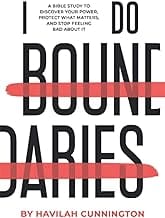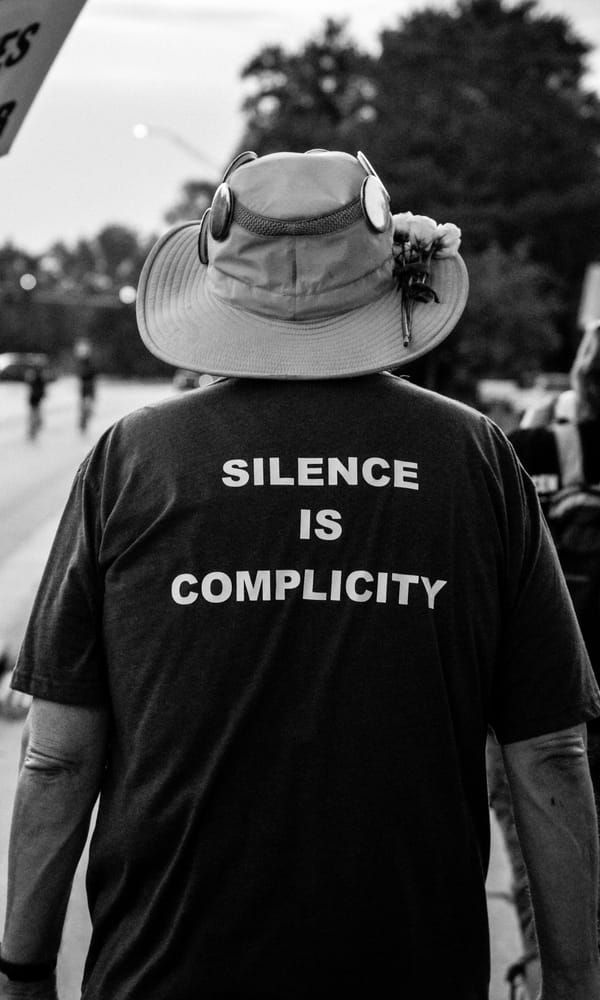I Do Boundaries: A Bible Study to Discover your Power, Protect what Matters, and Stop Feeling Bad about It

Havilah Cunnington’s latest work, I Do Boundaries: A Bible Study to Discover your Power, Protect what Matters, and Stop Feeling Bad about It, presents a compelling exploration of the often-overlooked necessity of personal boundaries within a Christian context. At the heart of this 15-day study is the premise that God does not exploit us to fulfill His purpose; rather, we are encouraged to steward our lives wisely through the power of ownership and self-care. With a reflective and scholarly approach, Cunnington unpacks the biblical principles of boundary-setting as demonstrated by Jesus, challenging common misconceptions and offering a roadmap for believers seeking to reclaim their lives from the burdens imposed by others.
Contextual Background
The study emerges at a pivotal moment when boundary-setting within Christian communities is frequently misunderstood, often viewed as selfish or unloving. Cunnington challenges these perceptions by rooting her analysis in biblical narratives, particularly examining Jesus’ life as an exemplar of healthy boundaries. Unlike other Christian self-help works that focus predominantly on servitude and self-sacrifice, Cunnington's study elevates the theological significance of boundaries as an act of obedience and wisdom. Her work diverges from traditional teachings by proposing that personal boundaries are not just permissible but essential for a balanced, God-honoring life.
Central Approach and Themes
Cunnington employs a narrative approach grounded in biblical exegesis and personal anecdotes, weaving together scriptural analysis with practical guidance. Her methodology is deeply rooted in the life of Jesus, whom she portrays as the ultimate model of boundary-setting. By meticulously examining how Jesus managed His time, emotions, and interactions, Cunnington draws out profound theological insights that redefine conventional Christian teachings on sacrifice and service. This approach underscores her central thesis: boundaries are a God-given tool that empowers individuals to live authentically and purposefully, free from the undue weight of others' expectations.
A prominent theme throughout the study is the concept of "ownership"—taking responsibility for what is ours while releasing what is not. Cunnington invites readers to distinguish between their responsibilities and those of others, asserting that this discernment is vital for emotional and spiritual well-being. Through a combination of biblical principles, real-life scenarios, and reflective questions, she engages readers in a transformative process of self-discovery and empowerment.
Key Arguments or Insights
Central to Cunnington’s argument is the idea that boundaries are not barriers to connection but rather pathways to healthy relationships. She draws on key scriptural examples, such as Jesus withdrawing from crowds to pray or refusing to perform miracles on demand, to illustrate how boundaries can protect one’s purpose and priorities. These instances serve as powerful reminders that saying “no” is not a rejection of others but an affirmation of one’s calling and limits.
One of the most compelling insights is Cunnington’s emphasis on communication as an act of grace. She provides readers with practical tools to articulate their boundaries confidently and lovingly, mitigating fears of rejection or conflict. This nuanced perspective reframes boundary-setting from an act of self-defense to one of self-respect and mutual understanding, resonating deeply with readers who struggle with the guilt often associated with asserting personal limits.
Comparison with Other Works or Perspectives
While Cunnington’s work shares thematic similarities with other Christian teachings on self-care and emotional health, her emphasis on boundaries as a theological imperative sets it apart. Unlike secular approaches that often advocate for rigid self-protection, Cunnington’s study is grounded in a Christ-centered ethos that balances personal autonomy with relational compassion. She engages with existing discourses on Christian servitude by highlighting Jesus’ example as a boundary-setter, thereby offering a refreshing counter-narrative to the prevalent “martyr mentality” in many faith communities.
The study’s scholarly rigor is evident in its thoughtful integration of scriptural analysis with modern psychological insights. This combination not only reinforces Cunnington’s arguments but also broadens the scope of the discussion, making it accessible to a wider audience while maintaining a deep respect for biblical authority.
Themes or Messages Highlighted in the Book
A recurring theme in I Do Boundaries is the liberation that comes from embracing God-given authority over one’s life. Through vivid storytelling and scriptural references, Cunnington illustrates how boundaries enable believers to live in alignment with their values and convictions, free from the weight of external pressures. She emphasizes the importance of protecting what matters most—faith, family, and personal well-being—without succumbing to societal or relational expectations.
Another significant message is the transformative power of boundaries in healing and restoring relationships. Cunnington argues that boundaries do not sever connections but rather foster healthier interactions by defining roles and responsibilities clearly. Her insights challenge the reader to view boundaries not as walls but as bridges to more authentic and fulfilling relationships.
Broader Implications and Scope
The implications of I Do Boundaries extend far beyond personal application, touching on broader themes of spiritual maturity and community dynamics. Cunnington’s teachings encourage a re-evaluation of how churches and faith communities address issues of personal responsibility and relational health. Her work calls for a cultural shift towards acknowledging and respecting boundaries as essential for sustainable ministry and personal well-being.
By addressing universal questions of identity, purpose, and relational dynamics, Cunnington’s study resonates with a diverse audience. It invites readers to reflect on how their boundaries—or lack thereof—impact every facet of their lives, from their spiritual walk to their daily interactions. The study’s comprehensive approach makes it a valuable resource not only for individuals but also for small groups and counseling settings, where the need for healthy boundaries is often most acute.
Author’s Purpose and Intent
Cunnington’s purpose in writing I Do Boundaries is twofold: to equip believers with the tools to set and maintain healthy boundaries, and to challenge the pervasive guilt that often accompanies such decisions. Her intent is evident in the structured progression of the study, which guides readers from a place of introspection to actionable change. Each chapter builds on the last, creating a cohesive journey that mirrors the complexities of boundary-setting in a faith-based context.
The study’s organization reflects Cunnington’s goal of empowering readers to reclaim their lives with conviction and grace. Her approach is both didactic and pastoral, combining authoritative teaching with compassionate encouragement, making the reader feel both challenged and supported in their boundary-setting endeavors.
I Do Boundaries is a masterful blend of biblical wisdom, practical guidance, and personal reflection, offering a fresh perspective on the power of boundaries in the Christian life. Cunnington’s thoughtful exploration of Jesus’ example provides a compelling blueprint for anyone seeking to navigate the complexities of relationships with integrity and self-respect. The study’s relevance extends beyond personal development, prompting a broader conversation on the role of boundaries in fostering healthy faith communities. For readers grappling with the tensions of responsibility, guilt, and relational dynamics, I Do Boundaries offers not just answers but a transformative framework for living more freely and faithfully. This study is an invaluable resource for those ready to step into the fullness of their God-given authority and embrace the life of balance and joy that boundaries make possible.




